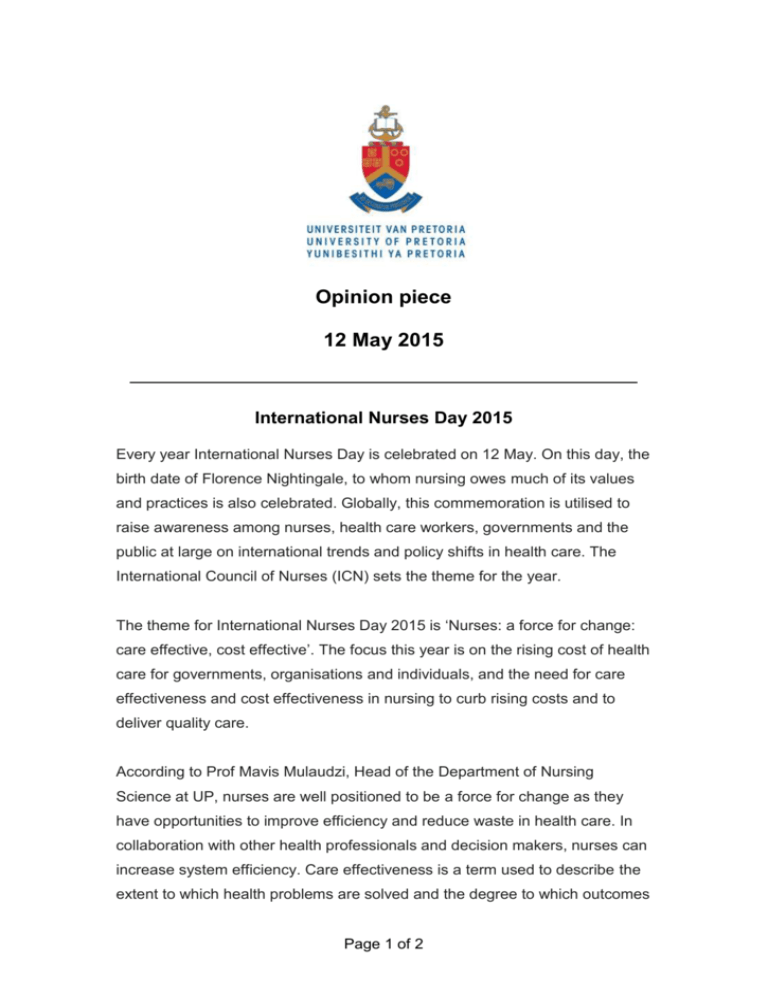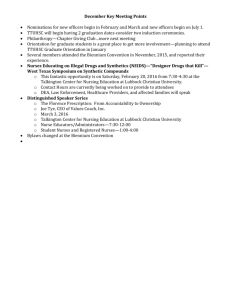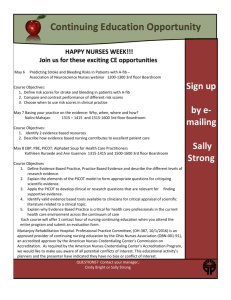International Nurses Day 2015
advertisement

Opinion piece 12 May 2015 ___________________________________________________________ International Nurses Day 2015 Every year International Nurses Day is celebrated on 12 May. On this day, the birth date of Florence Nightingale, to whom nursing owes much of its values and practices is also celebrated. Globally, this commemoration is utilised to raise awareness among nurses, health care workers, governments and the public at large on international trends and policy shifts in health care. The International Council of Nurses (ICN) sets the theme for the year. The theme for International Nurses Day 2015 is ‘Nurses: a force for change: care effective, cost effective’. The focus this year is on the rising cost of health care for governments, organisations and individuals, and the need for care effectiveness and cost effectiveness in nursing to curb rising costs and to deliver quality care. According to Prof Mavis Mulaudzi, Head of the Department of Nursing Science at UP, nurses are well positioned to be a force for change as they have opportunities to improve efficiency and reduce waste in health care. In collaboration with other health professionals and decision makers, nurses can increase system efficiency. Care effectiveness is a term used to describe the extent to which health problems are solved and the degree to which outcomes Page 1 of 2 are achieved. If we add cost effectiveness to this definition, it means nurses achieve the intended health outcomes at less cost, with quality as an underpinning element. Evidence shows that nursing is a cost effective yet often undervalued and underutilised healthcare resource. Nurses work within the context of cost– quality constraints imposed upon health care service delivery. For example, South Africa has 39,3 nurses per 10 000 members of the population, but a high percentage of these work in the private sector and shortages are especially acute in rural areas, said Prof Mulaudzi. Nurses must clearly articulate and demonstrate the value and cost effectiveness of nursing and nursing outcomes to consumers, other health care providers and policy makers at all levels. They must also be able to negotiate and advocate for the resources needed to provide safe care. In order for nurses to influence and shape decisions, it is essential that they clearly understand how policy is made and implemented, as well as its wider context. Prof Mulaudzi further indicated that nurses have a responsibility to engage in research and develop innovative models of care delivery that will contribute evidence of nursing effectiveness to planning, management and policy development. Dissemination of nursing research on the value and cost effectiveness of nursing is a vital component of advocacy and influencing health care policy. Page 2 of 2





